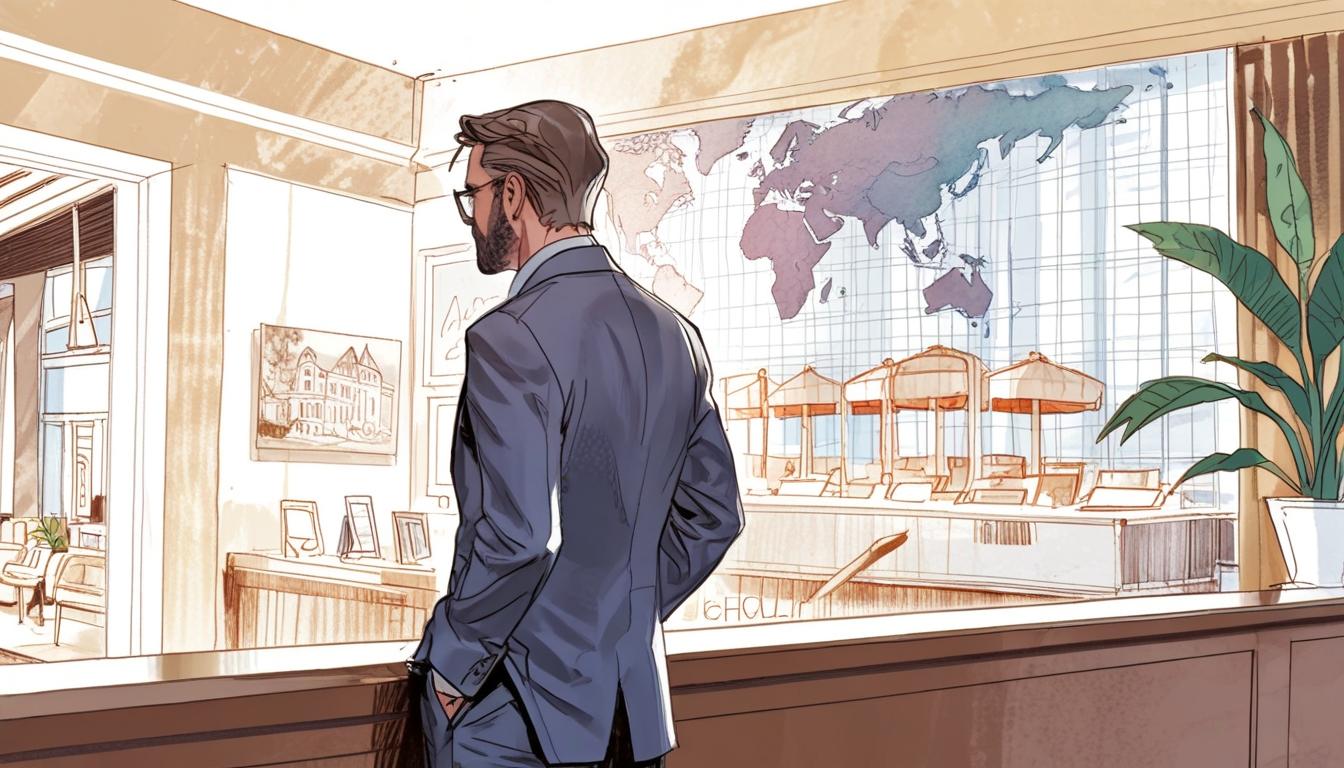Carlos Rodriguez Sr., CEO of Driftwood Capital, has highlighted growing concerns among investors regarding the impact of current US immigration and trade policies on the hospitality industry. Speaking during a recent trip to Chile where he met with company investors, Rodriguez detailed how these policy changes are influencing investor sentiment and travel behaviour, creating challenges for the sector.
Driftwood Capital, founded by Rodriguez and his son, Chief Operating Officer Carlos Rodriguez Jr., manages 80 hotels across the United States, holding equity stakes in about half of the portfolio. The company recently recapitalised an 18-hotel portfolio valued at approximately $1.2 billion, securing a $330 million securitised senior loan from Wells Fargo alongside $85 million in preferred equity from Acore Capital. This recapitalisation aims to reduce debt and provide investor returns, with the underlying properties operating under major brands such as Hilton, Marriott, and Margaritaville.
“This topic shows up in every single meeting, every investor,” Rodriguez told Bisnow during a Microsoft Teams interview from his hotel room. “They’re saying, ‘Well, if you don’t want us there, why should I invest there? If we’re not wanted in the United States, why should we bring our money here? Or why should we travel there?’”
Based in Coral Gables, Florida, Driftwood’s portfolio includes key hotels in South Florida, among them the 150-key Canopy by Hilton West Palm Beach Downtown. Rodriguez explained that the company’s near-term strategy is to “buy time” through recapitalisation in anticipation of improved market conditions, rather than selling assets during a down cycle. He indicated plans to refinance or divest some properties within three years and exit the entire portfolio within five.
Industry data from Colliers supports the company’s cautious stance, with hospitality being the only major real estate asset class to experience a year-over-year value decline of 4% in the first quarter of 2025. Other sectors such as multifamily, retail, and industrial saw gains, while office values remained stable. Rodriguez noted early signs of a slowdown in consumer confidence, pointing to decreases in lodging spending and airline expenditures.
The hotelier also flagged the impact of new tariffs introduced by the Trump administration on 2 April, which include a 10% universal tariff alongside specific duties of 25% on steel and aluminium and 145% on Chinese goods. These measures are driving up costs associated with construction and renovations. To mitigate these expenses, Rodriguez said Driftwood is increasingly sourcing materials from countries outside China and renegotiating vendor agreements. “Unfortunately, the United States doesn’t produce many of the goods that we need,” he commented.
Compounding these challenges is a notable decline in international travellers to the US, down 11.6% year-over-year excluding Canada and Mexico, according to preliminary figures from the International Trade Administration for March 2025. Countries such as Germany, Ireland, and the United Kingdom have issued travel warnings following reports of tourists being detained by US immigration officials. Rodriguez described this trend as "very, very concerning," though he acknowledged that much of US hotel business still depends on domestic travellers.
“As much as there is concern from investors and from foreign travellers,” Rodriguez commented, “I’m not going to say that everybody is not going to travel, but they’re asking the question, and I don’t like them asking the question.”
Despite the headwinds, Rodriguez remains optimistic about the long-term prospects of the US hospitality market, describing the country as having “the strongest economy” with a bright future, while also stressing the need for policy adjustments to maintain competitiveness.
Source: Noah Wire Services
